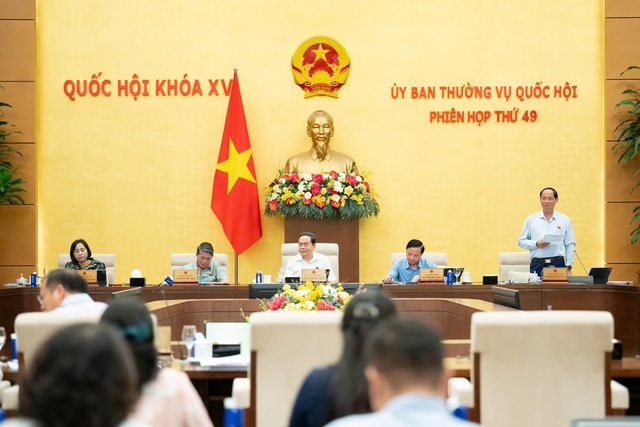Presenting the Government’s report, Senior Lieutenant General Nguyen Van Long, Deputy Minister of Public Security, said that the draft law will apply to Vietnamese agencies, organizations and individuals, as well as foreign organizations and individuals directly involved in or connected to cybersecurity activities in Vietnam, including those engaged in trading cybersecurity products and services.
    |
 |
|
At the session (Photo: chinhphu.vn) |
Key provisions include a new article on data security assurance, an additional clause outlining the responsibilities of service providers operating in cyberspace, and a clause relating to the funding of cybersecurity protection. The draft also encourages agencies and organizations in the political system, along with state-owned enterprises, to prioritize using Vietnamese cybersecurity products and services that meet national standards, thereby enhancing the country’s self-reliance in this field.
Echoing the justifications outlined in the Government’s report, Chairman of the N.A.’s Committee on National Defense, Security, and External Affairs Le Tan Toi affirmed the necessity of the new law to institutionalize the Party's policies and viewpoints on protecting national security, ensuring social order and safety, developing the digital economy, and promoting national digital transformation, innovation, and international integration, and also to address overlapping regulations of the two existing laws.
N.A. Chairman Tran Thanh Man stressed the importance of clarifying key concepts such as cybersecurity, cyberinformation security, cybercrime, and important information systems for national security. He called for clear criteria to classify and identify such critical systems in banking, energy, transport and telecommunications, together with rules on periodic assessments and continuous monitoring mechanisms to protect the systems from increasingly sophisticated threats.
It is also necessary to work out a mechanism for strictly handling violations of privacy and the unlawful collection or misuse of personal data, he went on.
He also underscored the role of the Ministry of Public Security, Ministry of National Defense, and Ministry of Science and Technology in protecting information systems, urging clear rules for data-sharing on cyberthreats between state bodies and enterprises.
During the same session, the Standing Committee also examined a draft law amending and supplementing a number of articles of 10 existing laws related to security and order. These include the laws on VIP protection; entry, exit, transit and residence of foreigners in Vietnam; exit and entry of Vietnamese citizens; residence; identity; forces participating in grassroots security and order protection; road traffic order and safety; roads; management and use of weapons, explosives and supporting tools; and fire prevention, firefighting, and rescue.
Comprising 12 articles, the draft aims to institutionalize the Party and State's policies and guidelines on the re-organization of state apparatus, science - technology development, innovation, national digital transformation, the decentralization of powers across different levels of administration, and the removal of administrative obstacles arising in practice. The move is expected to help promote the compliance with the Constitution and the legal system's consistency, as well as the protection of human rights and citizens' rights.
Source: VNA